The crypto market moves fast—and so do the risks. Every time you log in to an exchange, submit KYC data, or confirm a withdrawal, you transmit information that scammers, trackers, and opportunistic Wi-Fi snoops would love to see. Regional restrictions can also stop you from accessing features or entire platforms while traveling.
A VPN for crypto trading solves three problems at once: it encrypts your traffic, hides your IP address, and helps you maintain access across borders. But not every service is built for the realities of trading on mobile or on the go. This guide breaks down what really matters, compares leading options, and shows you step-by-step how to set up a secure, fast, and reliable workflow—without hype or keyword stuffing.
Key Criteria for Choosing a VPN for Crypto Trading
Picking a VPN for trading isn’t the same as picking one for streaming. Markets move fast, and your setup has to keep up. Prioritize low latency, rock-solid uptime, and a privacy model you can trust—then weigh extras.
- Privacy & security first. Favor a strict no-logs policy, RAM-only servers, strong encryption (AES-256 or ChaCha20), a reliable kill switch, and DNS/IPv6 leak protection. Obfuscation helps your traffic blend in on restrictive networks.
- Speed & stability. Low-latency protocols (e.g., WireGuard variants) and nearby servers reduce slippage and failed orders. Bandwidth helps with research and charts; for execution, latency matters most.
- Server footprint. A broad, well-maintained network lets you switch IPs quickly and pick routes near major financial hubs for faster page loads, API calls, and app responsiveness.
- Mobile experience. If you trade on your phone, look for polished iOS/Android apps with one-tap connect, auto-connect on untrusted Wi-Fi, and efficient battery use. Split tunneling (per-app routing) keeps your exchange and wallet in the tunnel while leaving non-essentials outside.
- Transparency. Independent audits, open-source clients, and clear privacy docs build confidence when account access and PII are at stake.
- Payments & support. Crypto payment options add discretion; responsive support minimizes downtime when it counts.
Finally, map these criteria to your needs—budget, device count, or a dedicated IP—and shortlist candidates on fit, not hype.
Popular VPN Options for Crypto Traders (Deep Dive)
Choosing the best VPN for crypto trading isn’t about naming a single winner—it’s about matching your workflow to each provider’s strengths. The reviews below focus on what actually matters to traders: low-latency performance during volatile markets, credible audits and no-logs policies for crypto trading privacy, mobile reliability for on-the-go orders, and practical details like split tunneling, server coverage, and payment methods (including crypto). If you rely on Binance or other major exchanges, read for fit rather than hype—each option shines in different scenarios.
1. NordVPN — Fast, feature-rich, and well-audited
NordVPN pairs a large global network with a WireGuard-based protocol (NordLynx) that’s consistently quick. Privacy features include RAM-only servers, a strict no-logs stance, and extras like malware/trackers blocking. Power users appreciate Meshnet for encrypted device-to-device links—useful if you travel with a “charting laptop” and a “trading phone.”
- Why it suits crypto trading: low latency for order placement, plenty of nearby servers, and strong “belt-and-suspenders” privacy defaults.
- Pros: Speed, mature apps, independent audits, expansive server list.
- Cons: Lots of toggles can overwhelm newcomers; add-on bundles raise price.
- Best for: Traders who want speed + deep tooling without giving up user-friendliness.
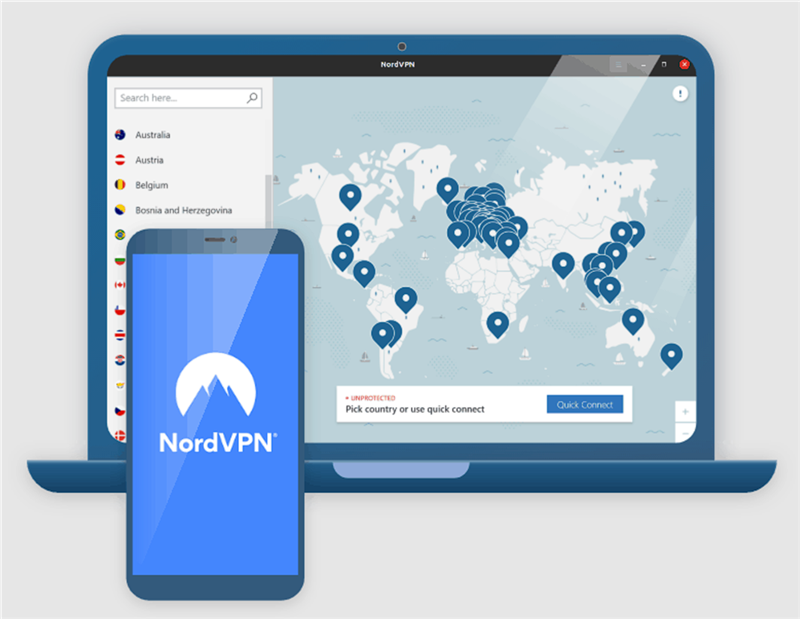
2. ExpressVPN — Polished mobile performance and battery-friendly protocol
ExpressVPN’s Lightway protocol starts quickly and sips battery on iOS and Android. The TrustedServer (RAM-only) design and a long audit trail back up its privacy claims. Express keeps the UX slick and consistent across platforms, which matters if you trade while traveling.
- Why it suits crypto trading: reliable mobile performance for mobile crypto trading, steady speeds across regions, and minimal friction when connecting on café or airport Wi-Fi.
- Pros: Excellent apps, stable speeds, strong track record of audits.
- Cons: Pricier than many competitors; fewer “tinker” options for enthusiasts.
- Best for: Traders who value an effortless, stable experience—especially on phones.
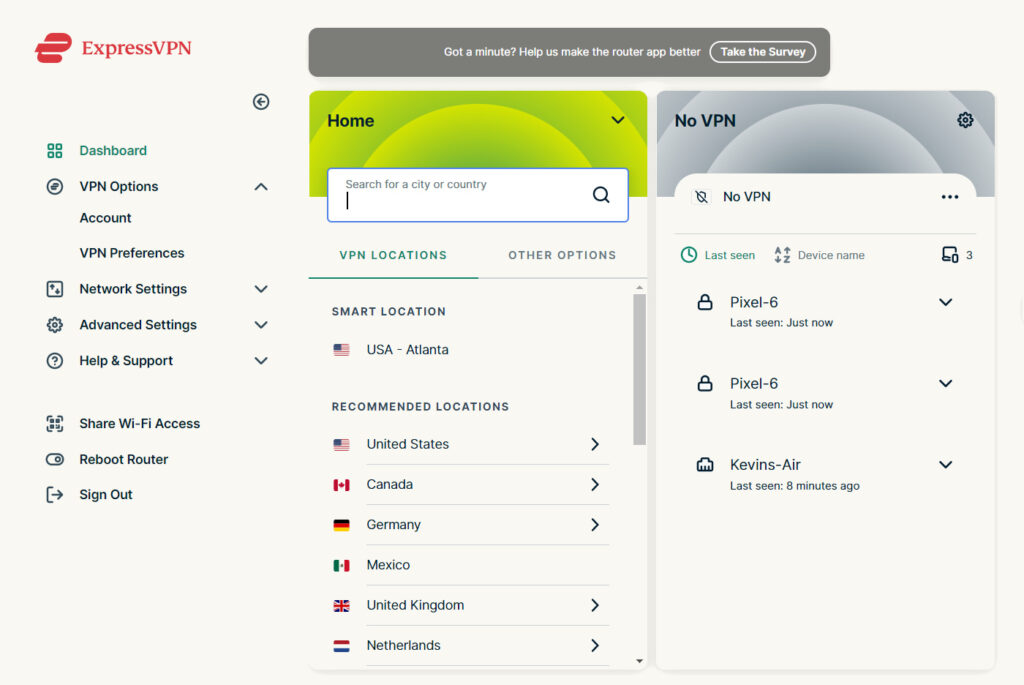
3. Surfshark — Unlimited devices and clever privacy extras
Surfshark’s value proposition is strong: unlimited device connections, RAM-only servers, CleanWeb tracker/malware blocking, and Nexus-based features like IP Rotator and Dynamic MultiHop. These rotate your exit IP without dropping the session—handy when researching or using multiple accounts (within platform rules).
- Why it suits crypto trading: flexible routing, competitive speeds, and a price that fits long-term use across all your devices.
- Pros: Great value, unlimited connections, advanced privacy features for the cost.
- Cons: Features sometimes land later on iOS; network smaller than top two in some regions.
- Best for: Budget-conscious traders who still want modern privacy tools.
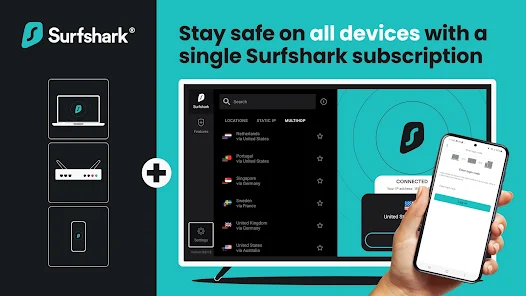
4. Proton VPN — Transparency and defense-in-depth
Proton VPN emphasizes open-source apps, independent audits, and a privacy-first culture. Secure Core can route your traffic through hardened jurisdictions before exiting elsewhere—useful where surveillance is heavy. NetShield helps block malicious domains when you scan news, research, and community links.
- Why it suits crypto trading: verifiable privacy posture for KYC logins and withdrawal approvals, plus flexible routing for tricky networks.
- Pros: Open-source clients, serious security pedigree, thoughtful feature set.
- Cons: Secure Core can reduce speed; UI density can feel “pro” rather than casual.
- Best for: Traders who prize transparency and are okay tuning settings for the best path.
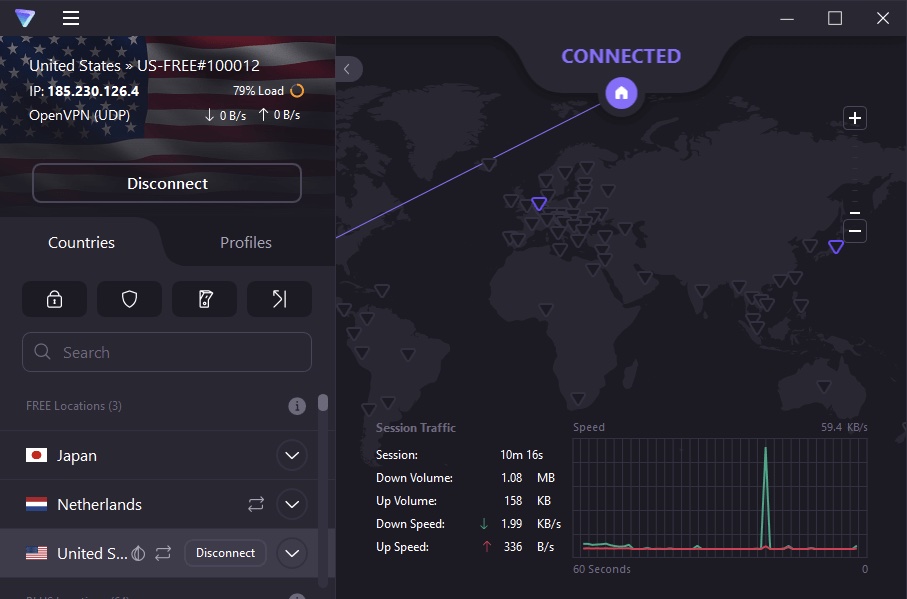
5. Mullvad VPN — Minimal data exhaust and anonymous accounts
Mullvad issues numbered accounts with no email requirement and supports privacy-forward payments. The apps are clean, fast, and built on open standards. Documentation and policies are refreshingly blunt.
- Why it suits crypto trading: extremely small personal data footprint, consistent performance, and a straight-shooting approach to privacy.
- Pros: Anonymous sign-up options, flat pricing, trusted reputation.
- Cons: Fewer consumer conveniences (e.g., marketing-driven “extras”); smaller network than mega-brands.
- Best for: Privacy maximalists who want simplicity, predictability, and low noise.
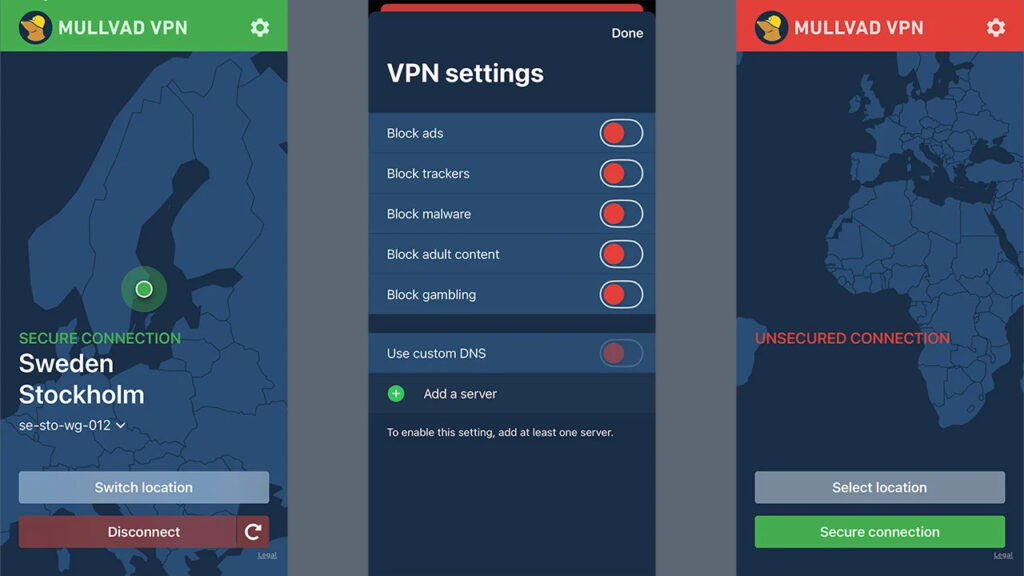
How to choose among them
If your priority is fast, low-latency execution, start with NordVPN or ExpressVPN. If you want value and unlimited devices, look at Surfshark. If open-source transparency and jurisdictional hardening matter, Proton VPN is compelling. If you’re a privacy purist, Mullvad’s minimal data posture is tough to beat. Any of these can work for the best VPN for crypto trading—your workflow decides.
Best VPN for Mobile Crypto Trading – BearVPN
Mobile trading is where speed, privacy, and simplicity collide. You’re placing time-sensitive orders over 4G/5G and public Wi-Fi, switching networks while traveling, and juggling exchange, wallet, and authenticator apps. In this environment, the best VPN for crypto trading is the one that keeps latency low, prevents IP/DNS leaks, and stays effortless to use—every single time you open your phone.
Why BearVPN is a strong mobile choice (iOS & Android):
BearVPN is built specifically for phones and it shows in real-world trading. Instead of chasing desktop-only features, it focuses on the outcomes that matter on mobile:
- Fast, low-latency connections: Optimized tunnels keep exchange apps responsive during volatile moves. The same real-time performance that benefits gaming also helps avoid order delays and slippage on mobile.
- Tight privacy by design: A strict no-logs policy, RAM-only servers, and DNS-leak protection reduce the chance of exposing your real IP or request history while you log in, move funds, or pass KYC checks.
- Per-app control for your trading stack: With split tunneling (per-app VPN), you can force your exchange, wallet, and authenticator through the encrypted tunnel while leaving non-critical apps outside it—maintaining speed where it counts.
- Obfuscation/anti-tracking: Makes VPN traffic blend in with normal HTTPS, helping you stay connected on restrictive networks (airports, hotels, campus Wi-Fi) and shrinking your overall tracking surface.
- One-tap experience, built for motion: The clean UI and quick handshake let you connect before a trade without hunting through settings. Global servers enable rapid IP changes when you’re traveling, so your session stays smooth across regions.
- Only what mobile traders need—nothing you don’t: By focusing on iOS and Android, BearVPN minimizes friction and avoids the “heavy desktop client” issues that can slow phones down.

When to pick BearVPN over general-purpose VPNs:
- Your primary workflow is on iOS or Android, and you want a vpn for crypto trading mobile that connects instantly and stays stable.
- You rely on split tunneling to keep your exchange/wallet/authenticator fast while streaming music or browsing on the side.
- You trade on the move and need quick server swaps plus protection on untrusted Wi-Fi—without wrestling with complex desktop-centric settings.
BearVPN isn’t about overwhelming you with toggles; it’s about giving mobile traders the speed and privacy they need with the least effort. If your use case is best VPN for crypto trading iOS or best VPN for crypto trading Android, starting with BearVPN shortens the path from “connected” to “order filled”—and keeps your session private along the way.
Best Practices for Secure Crypto Trading (Beyond the VPN)
A VPN is essential, but it’s only one layer. Tighten the rest of your setup so a single mistake doesn’t snowball into a breach.
- Lock down identity & access. Use TOTP-based 2FA (authenticator apps), not SMS. Where supported, add a hardware security key. Enable anti-phishing codes and withdrawal whitelists on exchanges.
- Shrink your attack surface. Trade on a dedicated device or profile. Don’t install third-party keyboards, clipboard tools, or unfamiliar wallets on your trading phone. Disable Bluetooth/AirDrop when idle.
- Protect seeds & backups. Keep seed phrases offline in two separate places. Never paste seeds/private keys on an internet-connected device. If you use a password manager, secure it with a strong master password and hardware-backed 2FA.
- Stay patched—verify sources. Update your VPN, OS, and exchange apps promptly. Bookmark official domains and use them; ignore “update” prompts from emails/DMs.
- Use least-privilege networking. Tighten mobile app permissions and disable background refresh for non-trading apps. Prefer per-app VPN rules so only your exchange, wallet, and authenticator traverse the tunnel.
- Treat public Wi-Fi as hostile. If you must trade, connect the VPN first and confirm encryption. Avoid withdrawals or settings changes until on a trusted network. Captive portals can break tunnels—test that your kill switch actually blocks traffic.
- Skip “free” VPNs. They often rely on tracking or impose caps and unstable routes—bad news for financial activity. Pay for reliability.
- Respect rules & jurisdictions. Follow exchange Terms of Service and local laws. A VPN protects privacy; it’s not a tool for violating platform policies.
- Practice operational discipline. When changing networks or settings, place a small test order first. For travel, keep a checklist: VPN favorites saved, authenticator backed up, withdrawal whitelist verified, emergency contacts handy.
Conclusion – Stay Private, Trade Confidently
The best VPN for crypto trading blends privacy, speed, and usability into a setup you can trust under pressure. You now know which features matter, how leading services differ, and how to configure a workflow that holds up on unreliable networks and during market spikes. If you trade primarily on mobile, a mobile-first VPN like BearVPN is an easy win: one-tap connect, leak protections, RAM-only servers, global locations, and per-app routing that keeps your trading stack fast and secure. Whatever provider you choose, make the VPN a permanent part of your routine—right alongside TOTP 2FA, withdrawal whitelists, and sane device hygiene. Security is your first investment; everything else builds on top of it.



